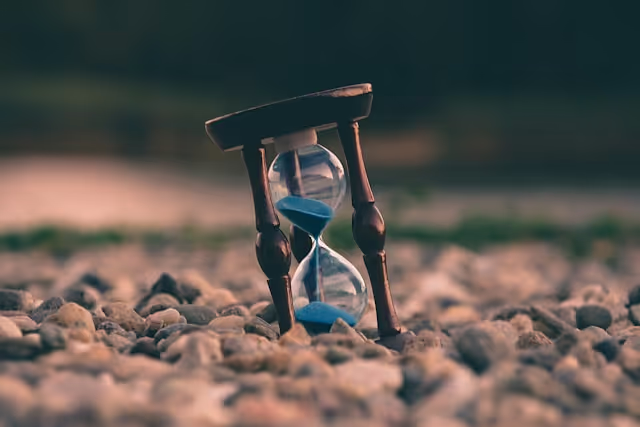
Blog
Why You Need a Will in New Zealand
Take charge of your financial legacy
The grim reaper is coming for us all, so it is a little surprising none of us like to think about dying one day. Maybe that’s why many of us Kiwis put off the task of estate planning; data indicates over half of us don’t have a will.
Imagine someone turning up at your funeral and asking, “So… what next?” That’s what happens when someone dies without a will. Your loved ones are left guessing. Spoiler alert: confusion isn’t usually the topic of heartfelt speeches.
Some of us assume we don’t need a will because we don’t have enough assets. Others just don’t consider it, and more of us still just think we’ll live to a ripe old age so can arrange our affairs sometime closer to our death.
Well, life isn’t always that convenient. The grim truth is that enough New Zealanders die every year to fill our largest stadium, Eden Park. While our chances of dying increase as we age, there’s still plenty of young and middle-aged people that pass away each year.
Even if we’re young and healthy, that isn’t the same as being immortal. Being young and healthy won’t protect us from dying in a car accident or a natural disaster, or from a sudden illness or injury. We can never be truly sure what tomorrow will bring.
What Happens If You Die Without a Will in New Zealand?
In legal terms, dying without a will is called dying “intestate.” In everyday terms? It’s a logistical nightmare, and an avoidable one at that.
When we die, everything we own, and everything we owe, is called our estate. This might include:
- Bank accounts
- Home and other real estate
- Shares
- Retirement accounts, including KiwiSaver
- Vehicles
- Jewellery, watches, personal effects
- Furniture
- Electronics
- Pets
- Collectibles, paintings, books, clothing, musical instruments, family heirlooms, and so on
If you die intestate in New Zealand, your estate is distributed according to the Administration Act 1969. This is a law that hasn’t aged particularly gracefully. It sets out a rigid formula based on your surviving family members. No discretion, no consideration for your personal wishes, and certainly no room for nuance. The government essentially plays executor.
Here’s what happens:
- If you have a spouse/partner and children, your partner doesn’t inherit everything. They get: the first $155,000 (yes, it’s that specific), personal, then one-third of the remainder of your estate. The remaining two-thirds goes to your children.
- If you have no children but do have parents or siblings, they may be entitled to a portion of your estate alongside your partner.
- If there’s no immediate family, your estate could go to extended relatives, and if no eligible relatives can be found… the government gets it.
And here’s the kicker: you don’t get to choose the executor, so someone you’ve never trusted or barely know might be handling your most sensitive affairs. Plus, the probate process becomes more complex and expensive without a will, adding stress to an already difficult time for your family.
As the New Zealand Law Society bluntly puts it: “Without a will, your loved ones may face delays, unexpected legal costs, and disputes.”
And all of this could be avoided by a document that takes less time to create than watching one episode of a Netflix series.
Wills Are Not Just About Who Gets What
Let’s be clear: a will is not a step-by-step to-do list for organising a roast dinner at your wake. But it can include your funeral preferences, from music to who reads the eulogy. You can ask for something witty or profoundly touching.
Aside from sentimental matters, your will lets you:
- Protect vulnerable beneficiaries, such as children, or those with special needs.
- Create a trust. For instance, if you’d rather your assets drip out over time rather than being spent all at once.
- Include digital assets. This might mean leaving passwords and instructions, and access to crypto wallets.
Avoid Family Feuds: It’s a Real Thing
Without a will, the law steps in. That often ends with distant relatives getting involved, “he said, she said” arguments, and unintended consequences.
This is hardly ever pretty, as Kiwi families are rapidly changing, (including higher divorce and separation rates, more single parents, blended families, special laws about Māori land, and New Zealand’s high rate of family trusts), means that even seemingly simple situations can soon be not-so-simple for those left behind. This might mean our entire estate could end up going to an estranged spouse because we were never legally divorced, or to a sibling we haven’t seen in years.
Professional estate planning is about peace, letting you protect family harmony.
Related articles:
- Regrets of the dying
- Swedish death cleaning for the digital age
- The power of estate planning: protect your families future
How to Create a Will: Your Super‑Simple Roadmap
Perhaps the biggest single barrier to making a will is the hassle involved. Many of us assume that writing a will is a complex or expensive process that requires the aid of a lawyer. We might put it off because we think we don’t have the money or time to do it properly.
In fact, there are several ways to make a perfectly legal will without consulting a lawyer. If our situation is nice and simple, then we can use boilerplate forms with templated language, where all we must do is fill in the names of our heirs and the amounts left to each one.
For a little more flexibility, we can use an inexpensive online will-maker that allows us to create a customised will. Online New Zealand platforms include:
We can even write out a will by hand, although it must be correctly witnessed and meet other criteria.
That said, in more complex situations. such as blended families or when you have multiple assets, it is advisable to spend some money and discuss your will requirements with a lawyer. It may not be as expensive as you first thought. The peace of mind is likely to be worth it.
Who Can Make a Will?
Anyone of sound mind who is at least 18 years old can make a will. A person under 18 may make a will if they, are or have been, married or in a civil union or de facto relationship. Others under the age of 18 can make a will if given approval by the Family Court or if they are in the military or are a seagoing person.
When to Update Your Will
Wills can be changed; they’re not set in stone. If our life situation isn’t as settled as we’d like, if our circumstances change, or if we simply change our mind, we can just write a new will. Even if we decide to make a completely new will, we can still use the old one as a reference, which makes the process faster.
Besides, life can be a roller coaster, right? A will drafted at 30 will surely be obsolete at 60. Update it when:
- You marry, separate, or re‑marry.
- You have children or grandchildren.
- You buy or sell property.
- Assets like shares and investments change.
- Your executor or guardian can't or won’t act.
The Bottom Line, Why You Need a Will in NZ
Most of us can’t control when we die. But we can control the controllables. A will is a powerful tool to manage your legacy, support your loved ones, and part ways with dignity.
For just a small investment of time, money, or both, we can each purchase the peace of mind that comes with the knowledge our loved ones will be taken care of when we’re gone, and of knowing that we’re not leaving a mess behind. That’s something we can’t put a price on.
Disclaimer: we’re not lawyers, and this is not legal advice. For further information, seek the services of a suitably qualified professional.
You may also like:

Mortgage Interest Rates Start to Fall

How to avoid an investment scam


